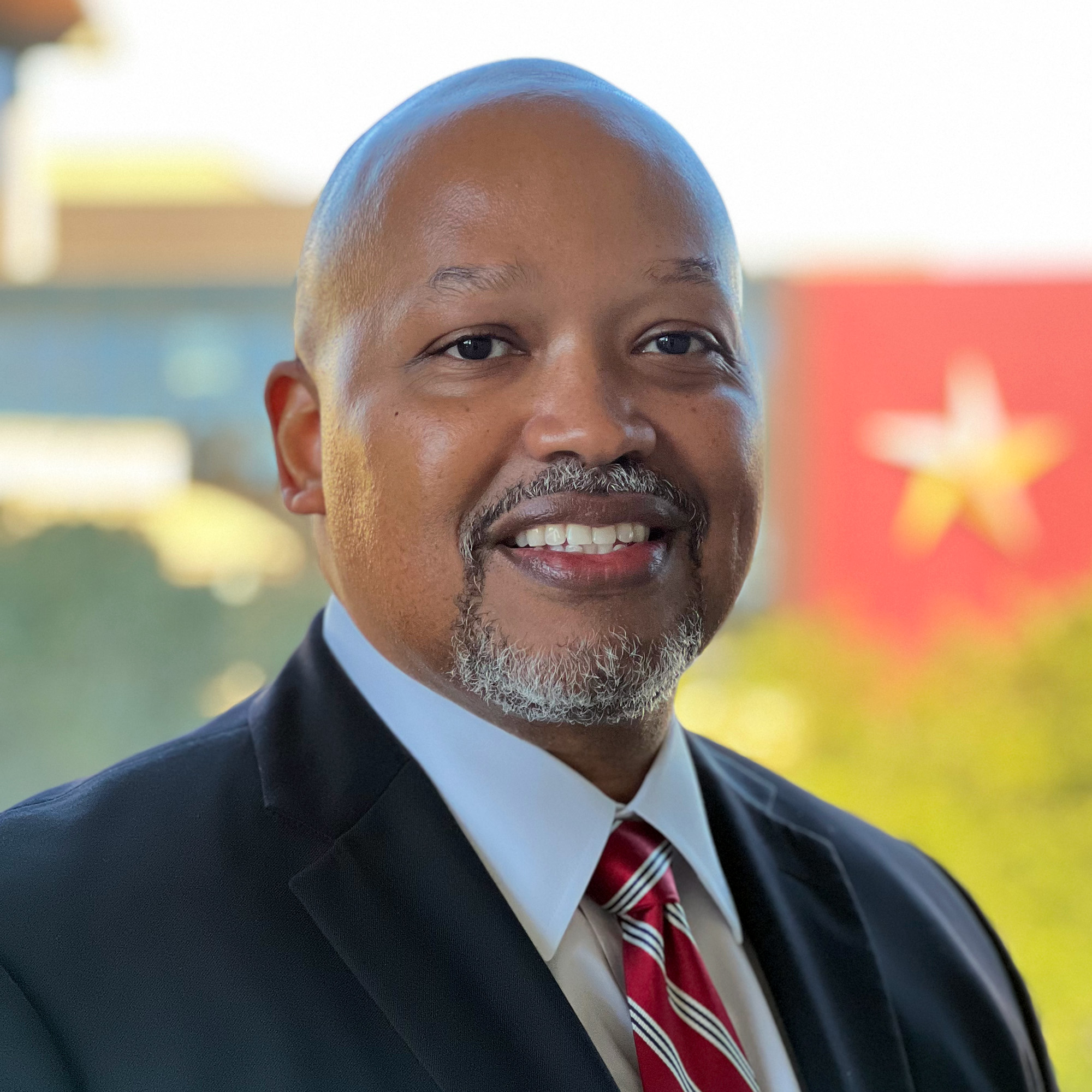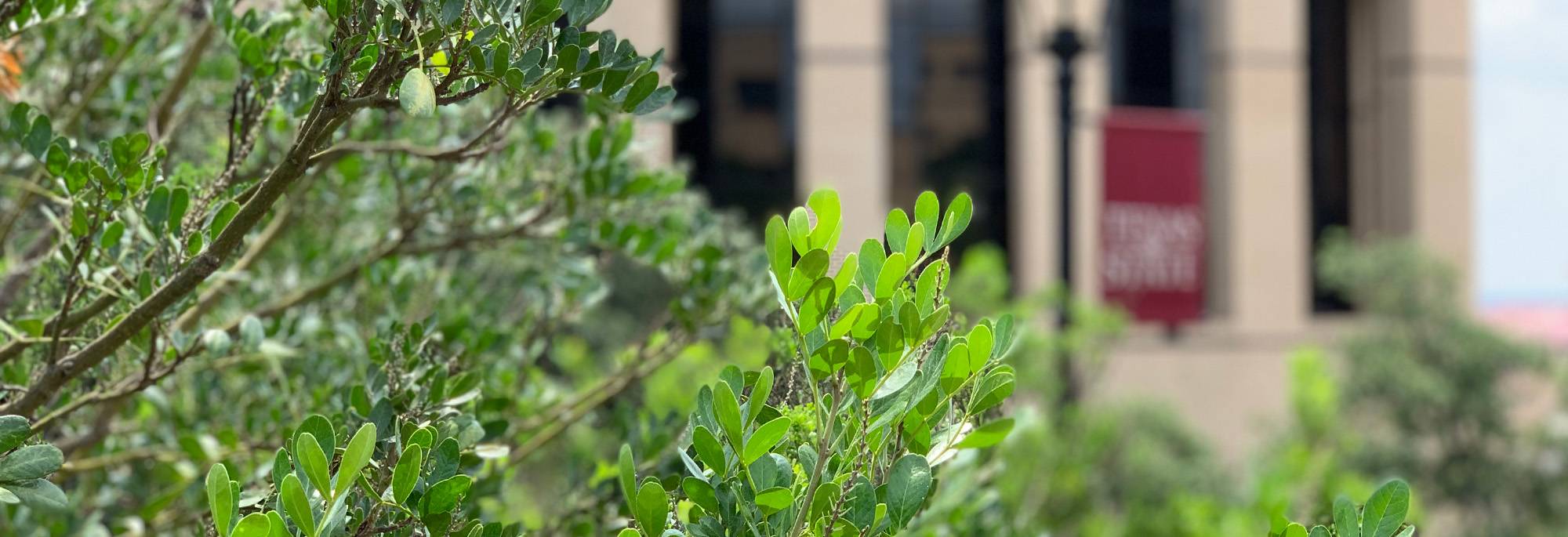
By Vallie Figueroa
Communications Specialist
McCoy College of Business
SAN MARCOS, Texas — Dr. Phil Davis, associate dean for faculty success and research at Texas State University's McCoy College of Business, received the "Best Theoretical Paper" award at the 49th annual Small Business Institute (SBI) conference held in New Orleans, Louisiana, April 2-5.
Davis coauthored the paper "Distinctive Views on Social Entrepreneurship: A Taxonomy and Some Theoretical Propositions Rooted in Moral Licensing," along with Jeffrey Muldoon, associate professor of management at Southeastern Louisiana University; Diego Matricano, associate professor of entrepreneurship and innovation at University of Campania; and William McDowell, dean of Daveler and Kauanui School of Entrepreneurship at Florida Gulf Coast University.
The paper explores the intricate and often complex nuances of social entrepreneurship, introducing a taxonomy — a classification system used to organize and categorize information, data, or content — that leverages moral licensing theory to explain how some social ventures maintain legitimacy despite ethically ambiguous behavior.
"It examines the tension between the social entrepreneurs' social mission and its financial sustainability, which can lead to conflicts and ethical uncertainties," Davis said.
Davis said that despite his demanding schedule, balancing research responsibilities and working a full-time administrative role at McCoy College, receiving the award validates his efforts.
"On a personal level, the award is reassuring that the work my fellow coauthors and I conducted was received well by others," he said. "From a professional standpoint, this is my first time earning an award since I have been in administration full-time."
Davis said the study is an extension of a long-standing academic interest in the limitations of conventional theories applied to social entrepreneurship and has worked with his coauthors to expand the theoretical lenses from which the topic is studied.
"Social entrepreneurship research has been an area of interest since we published a 2016 article outlining areas that were not well explained using agency theory," he said. "Since then, my coauthors and I have published a few papers in top journals and provided several presentations to address the gaps we see in the literature. As government and other traditional institutions continue to underserve certain key areas of society, social entrepreneurs will continue to seek ways to service the underserved."
He suggests that this work is particularly relevant as nontraditional actors increasingly step into societal gaps left by governments and institutions.
"While most social entrepreneurial actions are commendable by all accounts, opportunities exist to exploit and expose those underserved populations," he said. "Our goal is to offer frameworks that articulate and account for these less-than-optimal situations in hopes of providing a more comprehensive view of outcomes from social entrepreneurial activities."
While Davis and his coauthors are proud of the recognition their research has received, developing the study was not without its challenges.
"One significant challenge we faced in developing this manuscript was trying to provide an alternative view of social entrepreneurship, without condemning or questioning all social entrepreneurial activities," he said. "We contend that most every social entrepreneur begins with desires to help those underserved. However, we recognize that these sentiments may shift over time or, in the rare instance, may not exist to start."
The national recognition that comes with receiving the award aligns with McCoy College's research mission and the university's broader "Run to R1" initiative, referring to The Carnegie Classification of Institutions of Higher Education that designates universities with "very high research activity." The “Run to R1” is a strategic effort by the university to increase research and development, improve student success, and expand the university's global impact.
"This recognition reflects the college's strategic priority of 'Achieve Research Eminence,'" Davis said. “Earning awards for research papers at conferences such as the Small Business Institute conference brings acknowledgement and prestige to the college. It promotes the notion that the McCoy College of Business is in the business of providing impactful research.” ✯
For more information about this story or other news, contact Twister Marquiss, manager of marketing and communications for the McCoy College of Business, at twister@txstate.edu.
About the McCoy College of Business
Established in 1970, Texas State’s business school officially became the McCoy College of Business in 2004 following a transformational gift of $20 million by Emmett and Miriam McCoy. The college, which offers classes in San Marcos, Round Rock, and online, is accredited by AACSB in both business and accounting, and has graduated more than 46,000 alumni.
Marketing and Communications
McCoy Hall 322B
Texas State University
601 University Drive
San Marcos, TX 78666
512.245.2990
